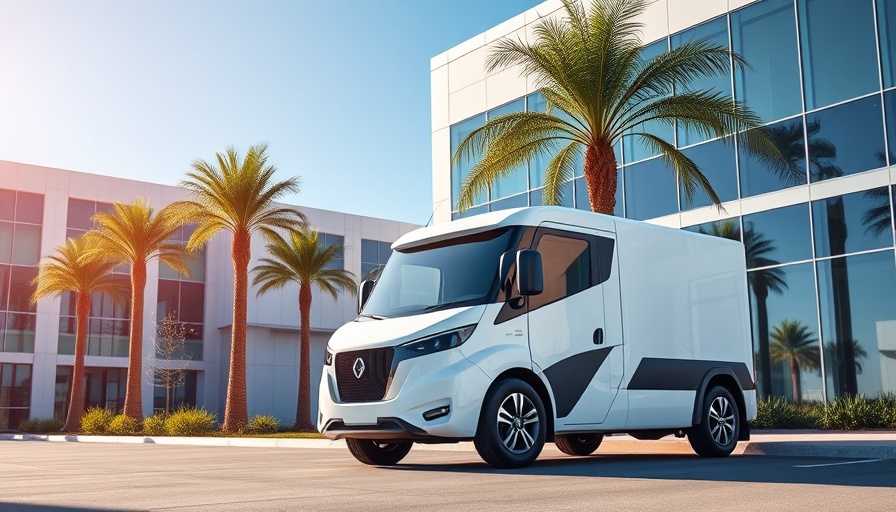
Lucid Motors Takes a Bold Step in the EV Market
In a surprising turn of events, Lucid Motors has emerged victorious in the bankruptcy auction for Nikola’s Arizona factory and other key assets. Committing around $30 million, the EV startup has acquired not only the manufacturing facility but also Nikola’s lease for its Phoenix headquarters, along with essential machinery, equipment, and inventory. This strategic acquisition offers Lucid potential for expansion and operational enhancement in its quest for the electric vehicle market.
Why Does This Acquisition Matter?
The ramifications of Lucid Motors’ successful bid extend beyond simple asset acquisition. With the bankruptcy of Nikola—once a formidable player in the electric trucking sector—it underscores the volatility within the EV industry. Nikola had struggled since its inception, ultimately filing for bankruptcy in February 2025 after a history marred by controversy, including the conviction of its founder for fraud. Lucid’s move could be seen as not just a business expansion, but a strategic acquisition aimed at positioning itself competitively in a fast-evolving industry.
Understanding the Broader EV Landscape
The electric vehicle market is burgeoning with opportunities and challenges that extend beyond company mergers. Industry trends indicate that consumers are shifting towards electric options due to environmental concerns and advancements in technology. According to recent research, it’s projected that the EV sector will account for 40% of global car sales by 2030. Lucid Motors, recognized for its luxurious EV models like the Air, is well positioned to tap into this growing demand.
Challenges Ahead for Lucid Motors
While the acquisition presents significant opportunities, Lucid Motors faces challenges. The company will need to integrate Nikola's operations into its own without disrupting its established processes. Moreover, Lucid must navigate the ongoing public skepticism regarding the EV market, particularly after Nikola’s turbulent history. Overcoming these challenges will require effective management and clear communication with both employees and customers.
Potential Employment Opportunities
As part of this transition, Lucid has announced plans to offer positions to approximately 300 former Nikola employees. This move not only provides stability to those impacted by Nikola’s downfall but also enriches Lucid's workforce with experienced personnel familiar with electric vehicle manufacturing. Such inclusive practices can spearhead innovation and enhance company culture.
Future Predictions in the Electric Vehicle Industry
The future of Lucid Motors and the industry overall hinges on various factors, including consumer acceptance of EV technology and further advancements in manufacturing techniques. Experts anticipate that companies prioritizing sustainable manufacturing and innovative technology will lead the market forward. With Lucid now acquiring Nikola's assets, it raises the question: will we see a shift in how electric vehicles are constructed and marketed?
The Broader Impact of Nikola’s Bankruptcy
The fall of Nikola serves as a cautionary tale in the electric vehicle sector. While the bankruptcy auction of their assets attracted significant attention, it also emphasizes the volatile nature of the startup landscape. Investors and entrepreneurs should take this as a lesson in conducting due diligence and understanding the intricacies of the market before diving headfirst into ambitious ventures.
Conclusion: The Road Ahead for Lucid Motors
As Lucid Motors steps into this new role, the company stands at a crossroads of opportunity and challenge. The acquisition positions them favorably in the competitive EV arena, yet the successful integration of Nikola’s assets and workforce will require astute management. It’s clear that the dynamics of the automotive industry are shifting, and only those companies willing to adapt to these changes will thrive.
 Add Row
Add Row  Add
Add 



Write A Comment